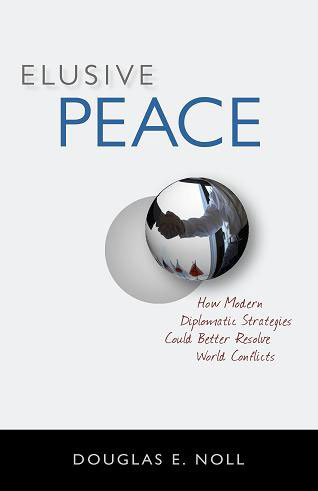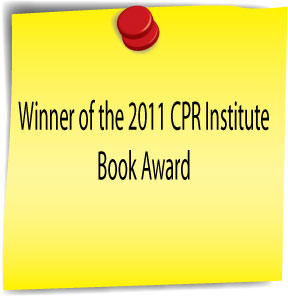Segment 1: A Different Paradigm.
Marty Price, J.D., our guest on this edition of The Doug Noll Show, is a social worker turned lawyer turned mediator. He is internationally recognized as a leader in Restorative Justice and peacemaking. Professor Price will soon be returning to India to teach Restorative Justice at a top-ranked law school in India (National Academy of Legal Studies and Research) and on this show we will be talking to him about his upcoming trip to India and Restorative Justice. His website is www.vorp.com.
Marty started out as a juvenile court social worker, but felt he wasn’t making a big enough difference in the lives of troubled kids and their families. In order to change the system he needed to get a law degree and go to court, but he soon discovered he was much better suited for peacemaking than for being a lawyer warrior. He began his peacemaking journey by volunteering at local dispute resolution centers as a mediator, and then moved to Restorative Justice, which he calls “a different paradigm for understanding crime and justice, and responding to crime with a different sort of justice.” Restorative Justice recognizes that crime is about hurting people: the direct victims, the indirect victims, and the community at large. Crime is about harm. Restorative Justice looks at who was harmed and who has an obligation to make it right.
Segment 2: Victim-Offender Mediation.
Victim-Offender Mediation is one form of Restorative Justice. It brings together victims and offenders, voluntarily, if and when they are ready. This work has the potential to transform lives. When people can’t move on, they lose their lives to their crime. Offenders often think of their victims as nameless and faceless. However, through Victim–Offender Mediation, the offender is able to take real, meaningful responsibility for what they have done, and assume an obligation voluntarily. Restorative Justice is not soft on crime; it’s much more difficult to face one’s victim than to face a judge.
Segment 3: India’s Criminal Justice System.
India’s criminal justice system, simply put, is broken. India has an incredible backlog of criminal cases. People wait 10-20 years in jail before they get a trial. This mainly happens to the poor, who cannot afford bail or a lawyer. Because of this lack of justice, the offenders and their families are suffering, and the victims’ families are suffering as well. Marty believes Restorative Justice programs can help. At each of the law schools at which Marty taught, students are carrying on Restorative Justice programs they’ve created. Marty planted the seeds; his students are growing the movement.
Segment 4: Exchanging Knowledge and Building Goodwill.
The Fulbright Commission sends students and professors overseas to teach and learn. It’s all about exchanging knowledge and building goodwill and peace between nations. Marty is going back to India in 2013, to the National Academy of Legal Studies and Research, where the vice-chancellor is an advocate for Restorative Justice. He asked Marty to come and teach for a semester, during which Professor Price will have an opportunity to pursue his own goals: to arrange internships for students to do Restorative Justice work. He is raising money to be able to accomplish this. If you would like to support Marty Price and this transformative work, please visit his website at www.vorp.com to find out more information and to make a donation.
To listen to the entire interview:



